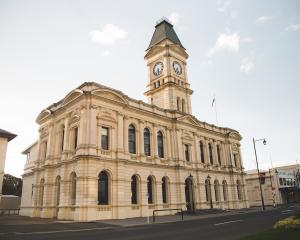
Weston mother and Foetal Anti-Convulsant Syndrome New Zealand support group education assistant Tanya Carlson-McLaren said the kits, due for release in November, contained information pamphlets for educators, family members, and health professionals about foetal anti-convulsant syndrome (FACS).
The group believed all anti-convulsant medications carried a risk, but if a woman was on Epilim (sodium valproate) the risk of her child being affected was up to 40%.
Mrs Carlson-McLaren’s 6-year-old daughter Mia was born with Foetal Valproate Syndrome after her mother ingested Epilim and it crossed the placenta through to Mia.
Mia did not speak until she reached school, sat on the autism spectrum, and struggled with social situations such as initiating play.
Mrs Carlson-McLaren was quick to say that not all women on anti-convulsant drugs would have a child affected by FACS, but there was a risk and doctors needed to make their patients aware of all possible side effects of the drugs they prescribed.Mia was born "floppy".
After two weeks in hospital she was taken home.Mia was having difficulty with feeding from day one, but at 4 weeks of age the decision was made to stop giving Mia breast milk due to the belief that the Epilim was making her drowsy.
Mia started developing shakes which were symptoms of withdrawal from the medication her mother had been taking.
Mia was deteriorating and was taken to Dunedin Hospital.
"No-one even then knew what was happening."
Eventually Mia came home, but was having difficulty going to sleep, sleeping only 10 minutes in the morning and 10 minutes in the afternoon.
Further trips to specialists revealed no real answers despite physical deformities until one day Mia’s paediatrician identified Mia as having Foetal Valproate Syndrome.
Mrs Carlson-McLaren believed that better education was key to preventing other children being harmed by medication, or at the very least women being put in a position where their consent was informed.‘‘I would have changed my medication.
"I wouldn’t do this to a child ... just informed consent is so important."
She believed Epilim had robbed her daughter of her full potential.
"Her wee brain has been damaged forever."
Foetal Anti-Convulsant Syndrome New Zealand executive officer Denise Astill said the damage caused by the anti-convulsant medication would become a bigger catastrophe than the Thalidomide babies.
Thalidomide, developed by the German firm Gruenenthal, was marketed internationally to pregnant women in the late 1950s and early 1960s as a treatment for morning sickness.
About 10,000 babies were born around the world with defects caused by the drug, mostly malformed and missing limbs.
She said Medsafe put out a transtasman early warning alert in September 2015 over the use of Epilim in pregnancy.
Unfortunately women were still taking Epilim without knowing the risks, she said.
Her group was not about stopping the medication, but informed consent.
"It should be the last medication someone gets prescribed."
"That’s where we’re coming from. Pre-pregnancy conversations need to happen between the health professionals and women.
"We know there are unplanned pregnancies so these conversations need to start early and be ongoing."











